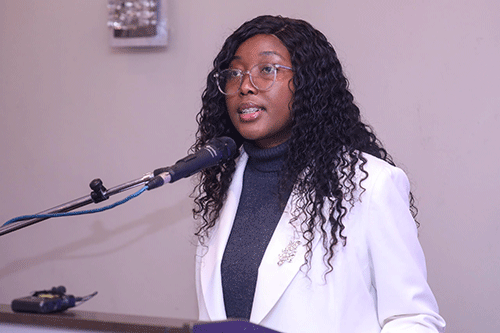The eighth national Information and Communication Technology summit is set to take place in Windhoek from 9 to 11 September 2024.
Its main objective is to provide the ICT industry a place to discuss current trends and issues the industry is facing, both locally and globally.
It aims to convene industry leaders, government officials, specialists and innovators to discuss cybersecurity issues and opportunities, exchange knowledge, and set Namibia on the path to a secure and successful digital future. The event will be held under the theme, ‘Building Resilience to Adapt or Die in the Era of Digital Transformation and Artificial Intelligence’. “Building resilience to ‘adapt or die’ is not merely an option anymore; it has become a necessity. It requires a proactive, strategic approach that empowers our citizens, businesses and government institutions to embrace the digital revolution and leverage its possibilities to their advantage,” said ICT minister Emma Theofelus yesterday during the summit minister’s breakfast. She added the
emergence of digital transformation and artificial intelligence presents numerous opportunities.
It has the potential to revolutionise industries, enhance efficiencies and improve the lives of citizens. However, it also brings along its fair share of challenges and risks. The rapid pace of technological advancement demands swift adaptability from organisations and individuals alike. Failing to adapt means falling behind, potentially leading to irrelevance or even extinction.
Therefore, the minister called on both private and government institutions to come on board, and play a significant role at this national event.
Moreover, the National Cybersecurity Strategy and Awareness Creation Plan (2022-2027) was unveiled earlier last year by Theofelus. The goal of the Cabinet-approved strategy was to protect the country’s essential information infrastructure. It also aimed to promote cybersecurity cooperation and awareness in order to continually raise internet users’ sense of security online. Theofelus asserted at the time that the nation’s capacity to carry out its development agenda may be adversely affected by the growing problem of cybercrime, and that technology platforms must be safeguarded, and that those who are most vulnerable must be made aware of the dangers of the internet. She said the ministry recognised the necessity to create and carry out the strategy as a result.



